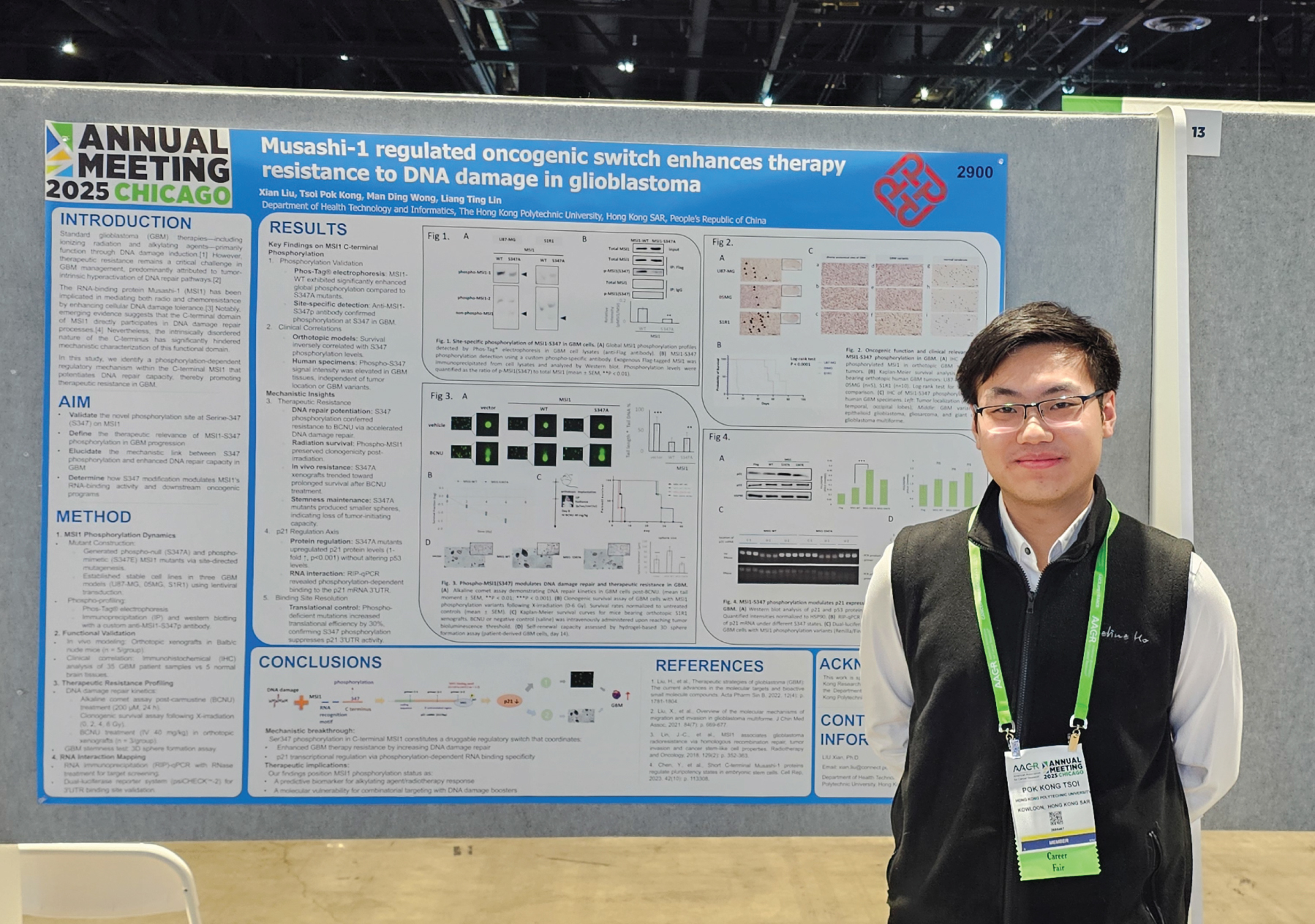Paco is developing a high-throughput screening platform using an oncoprotein for glioblastoma, a deadly brain cancer. This project, inspired by a PhD thesis, aims to identify drugs that slow cancer progression. With support from a US lab and helpful collaborators, progress has been promising. Paco’s team received the Best Presentation Award at the PolyU Research Students’ Conference, gaining valuable feedback and refining both experimental and presentation skills. Through trial and error, Paco learned the importance of realistic time management and self-care.
Support from PolyU, especially from Dr. Lin and various funding schemes, has been instrumental. As current treatments for glioblastoma are limited, Paco hopes this platform will accelerate drug discovery and promote early detection for better patient outcomes.

Mr. TSOI Pok Kong Paco
Department of Health Technology and Informatics
Faculty of Health and Social Sciences
Paco used of an oncoprotein (a cancer driver) in establishing a high-throughput screening platform for glioblastoma (GBM). Oncoproteins are proteins encoded by oncogenes that have the potential to cause cancer by promoting uncontrolled cell growth. Understanding the role of oncoproteins is fundamental in cancer biology, as targeting these proteins can lead to the development of new cancer therapies.
TGBM is described as a malignant brain cancer. This highlights knowledge about the nature of glioblastoma, which is known for its aggressive behavior, poor prognosis, and resistance to conventional therapies. Research into GBM is crucial for developing more effective treatments and improving patient outcomes.
Paco discussed the establishment of a high-throughput screening platform to identify drugs that can slow down cancer progression. High-throughput screening is a method used in biomedical research to quickly evaluate the effects of thousands of compounds on a biological target, accelerating the drug discovery process and enabling the identification of potential therapeutic agents.
Paco picked up a research topic that originated from a PhD student’s thesis and continued developing it. This demonstrates adaptability and the ability to learn new concepts and skills beyond your initial expertise—an essential lifelong learning trait for staying relevant in a rapidly changing world.
Paco sought and received assistance from another lab in the US and benefited from helpful colleagues. Building professional relationships, collaborating across disciplines and borders, and learning from others are key lifelong learning skills that foster innovation and personal growth.
By reflecting on Paco’s experiences—such as overworking or under-scheduling—you gained insight into his own limits and needs. This self-awareness allows him to adjust his habits and strategies, which is crucial for continuous improvement and lifelong learning.
Paco learned the importance of balancing studies, research, clinical placement, and personal life. Recognizing the need for self-care and making time for rest and relationships is a lifelong skill that supports sustained productivity and well-being.
The pursuit of knowledge is a lifelong journey! To further expand your knowledge and continue your personal and professional growth. Click and explore the following learning resources: